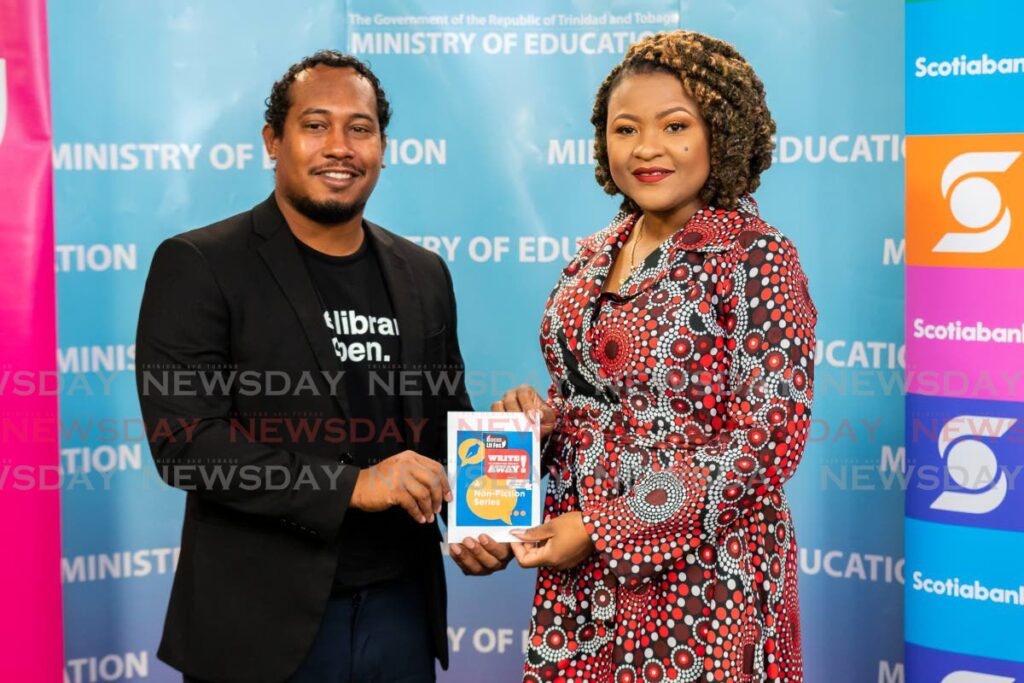Open letter to the Minister of Education: Addressing biases in school system

ASHA KAMBON
THE ANNOUNCEMENT that migrant children will be allowed into schools in September is excellent news for all who believe in social justice and the human rights of the child. As we welcome migrant students into our schools, we are presented with an opportunity to turn around our country’s education system to account for and correct the psychologically violent, colonial inheritance of a race and colour-based hierarchy.
I implore the ministry to look at the results of studies that address bias in education, in the region and the world, and to move forward with an eye to using education as a tool of upliftment for all rather than a platform to reinforce bias.
I am calling on the ministry to consider the impact of teachers’ cultural biases on their students. Within a Caribbean classroom, bias is typically reflected in the privileging of students who possess the “right” phenotypes – “good hair” and a “good complexion” – at the expense of children with the “wrong” characteristics – “dark skin” and “bad hair” – a continuation of the old colonial order of white over brown over black.
Without addressing these biases in the school system, not only will we propagate a meritless hierarchy, but we will also condemn many of our children to suffer ever deepening discrimination. We need to anticipate and avoid the expansion of a racialised underclass.
Many of us, including some of our teachers, have embedded biases. Colour-blindness in the education system, rather than ensuring non-discriminatory practices, simply ignores them. To counter the damage of prejudice, we must first confront the reality of its existence and then enact solutions in line with current research.
Race and ethnicity are both social constructs and therefore changing behaviours with regard to race and ethnicity can be achieved through policies that address socialisation and education. The Caribbean’s own Professor of Education (Language, Literacy and Cross-Linguistic Studies), S Joel Warrican of the University of the West Indies Cave Hill Campus, Barbados, focuses on comparative education, multiculturalism and multilingualism, colonialism and education change.
He laments the large proportion of children who are excluded from participating in the CSEC exams across the region, and others who perform poorly, and argues that “While many reasons are given for this poor showing (for example, poor cognitive ability, lack of interest in education, laziness, absence of parental guidance and interest), I believe that there is something else that is being overlooked or minimised. To me, what is not being given sufficient attention is the unjust, marginalising and debilitating systems of education that oppress and depress students whose language, culture, and values do not reflect those of the dominant white, male, middle-class ideals of modern education.”
In a study on Tackling teachers’ low expectations of black Caribbean students in English schools, undertaken by Feyisa Demie (2022) from the Department of Education, Durham University, Durham, UK, Prof Demie notes that teachers’ low expectation is one of the factors that hindered the achievement of black Caribbean students. The study concluded that “Low expectations manifest in several ways, including harsher reprimands, racist stereotyping, unconscious and conscious bias, as well as being overlooked to answer questions.”
The recommendations from this study are that “schools should challenge teachers through training and the effective use of an inclusive curriculum that provides students with knowledge about the histories, cultures and contributions of diverse groups.”
Other research noted that white teachers may have higher expectations of white and Asian students but lower expectations of black students’ academic achievement (Gershenson et al, 2017). The experience for black students is that they are disciplined by white teachers and schools more frequently, more harshly and for less serious misbehaviour, and they are less likely to be praised than other students (Demie, 2019; Strand, 2012).
Our lived experience in the Caribbean, Madame Minister, suggests that we can easily substitute white with black teachers and arrive at the same outcomes.
There is now a consensus among researchers in the field that one of the biggest obstacles to raising black Caribbean students' achievement is racism and the "colour blind" approach which has put them at a disadvantage.
In another study, this time in America, racism has been implicated as a cause of academic underachievement among African minority students from the Dominican Republic, especially boys (Limperopulos, 2015). The study provides us with an understanding of what institutional racism in the education system looks like.
It notes, “At the institutional level, racism is reflected in intentional and unintentional racial prejudice embedded in policies, norms, and practices within social institutions (Boutte, Lopez-Robertson & Powers-Costello, 2011; Utsey, Chae, Brown & Kelly, 2002). At the individual level, racism is reflected in intentional and unintentional racial prejudice stemming from a person’s negative attitudes and behaviors" (Boutte et al, 2011; Utsey et al, 2002).
We must disabuse ourselves of the notion that only people of one racial or ethnic group can practise discriminatory behaviour to the other. The world renowned Caribbean psychiatrist Dr Frantz Fanon led the way in helping us understand how the colonial imbibes the racial resentment of the coloniser and engages in the same racial discriminatory practices against his own.
Researchers conclude that both forms of racism, institutional and individual, manifest in the educational setting through exclusionary practices such as zero-tolerance discipline policies, negative stereotypes, low teacher expectations, and discriminatory teaching practices.
The Ministry of Education, in my humble opinion, is filled with knowledgeable and competent technocrats who want the best outcomes for the children whom they service. But that is not happening. And now we are integrating a new ethnic group of students into this toxic soup.
Something more or different has to be done to achieve the desired positive outcomes for all ethnic groups in the society. Consider additional teacher training. Consider training in cultural competencies.
Asha Kambon is a public policy expert

Comments
"Open letter to the Minister of Education: Addressing biases in school system"